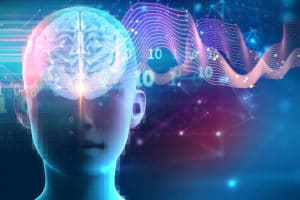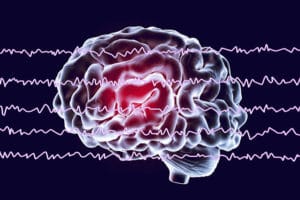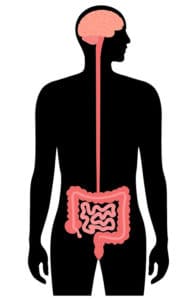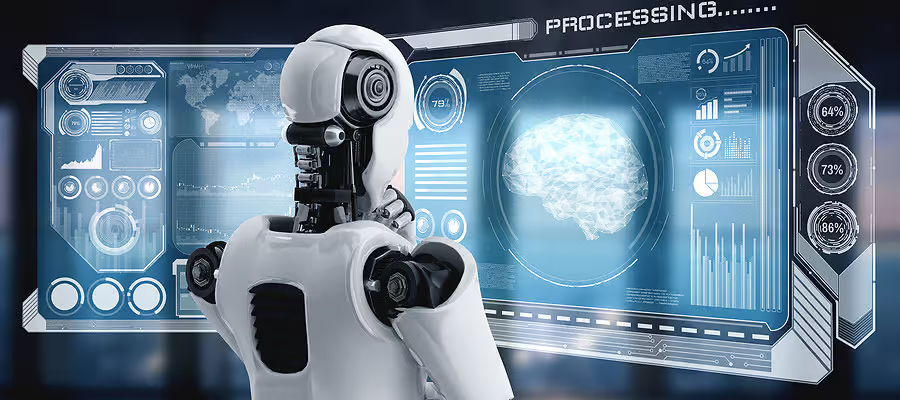Table of Contents
This post details how nootropics work. Nootropics can affect your brain by influencing brain waves, cerebral blood flow, cellular energy, hormones, neurotransmitters, neuroplasticity or growth factors.
You can get detailed explanations on each by reviewing the individual review dedicated to each of dozens of popular nootropics here on Nootropics Expert®.
This article is an overall summary of how nootropics work to enhance alertness, cognition, memory and recall. And relieve symptoms of anxiety or depression.
Dozens of natural and synthetic substances have nootropic properties. Each fall under one of several categories affecting your brain. Each category entails a different mechanism of action, neural pathway, or region of your brain.
Here we’ll look at each category, what it is, how it works and give you examples of nootropics that can influence each one.
Nootropics to increase Brain Energy
Your brain uses more energy than any other single organ in your body. Even though it represents only 2% of your body weight, it receives:
| 15% | your cardiac output |
| 20% | your total body oxygen consumption |
| 25% | your total body glucose utilization |
| 20% | your total body energy consumption[i] |
 When you feel mentally fatigued or experience brain fog, you could be because you are low on brain energy.
When you feel mentally fatigued or experience brain fog, you could be because you are low on brain energy.
One study published in the Proceedings of the National Academy of Sciences USA shows two thirds of your brain’s energy is used to help neurons to “fire” or send signals. The other third is used for brain “housekeeping”.
The primary source for cell energy is adenosine triphosphate (ATP). The ATP produced when your brain is not active (i.e. when you’re unconscious or asleep) goes to maintenance or housekeeping.
When you’re awake and using your brain, 2/3’s of your ATP fuels brain function, and the other 1/3 goes to housekeeping.[ii]
Nootropics to increase ATP include; cordyceps mushrooms[iii], ginseng, CoQ10, Vitamin B1 (thiamine), and Sulbutiamine.
Nootropics can support Brain Cell Signaling
Neurotransmitters send chemical messages between neurons. Through a complex chain reaction, a neuron sends a chemical messenger (i.e. neurotransmitter) across a synapse. This messenger binds to receptors on the receiving neuron’s dendrites, and then starts the process all over again.
“Scientists estimate your brain has about 86 billion neurons.[iv] Each neuron connects with up to 40,000 synapses. It’s difficult to comprehend the complexity of the brain no matter how many nootropics you take.” 🙂
Efficient signaling between neurons is critical for a highly optimized brain. When this signaling mechanism breaks down, your health breaks down along with it.
These are some of the neurotransmitters that can be helped through the use of nootropics…
Serotonin influences functions like mood, appetite and sleep. Lower than optimal levels of serotonin can result in depression or a bad mood.
Dopamine is involved in controlling body movement and aiding the flow of information to the front of your brain. Dopamine is linked to thought and emotion. Not enough dopamine can result in ADHD, Parkinson’s disease, or schizophrenia.
The most common neurotransmitter is glutamate. When glutamate is released it increases the chance that a neuron will fire. Glutamate enhances cellular energy, and assists in learning and memory. Problems with producing or using glutamate has been linked to autism, obsessive-compulsive disorder (OCD), schizophrenia, and depression.
Norepinephrine acts as a stress hormone in parts of your brain where attention and response to events are controlled. Along with epinephrine, norepinephrine is responsible for your fight-or-flight response. In your brain it acts like a neurotransmitter where it helps attention and focus.
Your body makes acetylcholine from choline you get from food and supplements. Acetylcholine is a neurotransmitter that plays a role in learning and memory. It also helps the creation of healthy synapses which maintains brain plasticity.
Nootropics act to increase or modulate each of these neurotransmitters. For example, Huperzine-A limits an enzyme which blocks acetylcholine from attaching to acetylcholine receptors. Tyrosine, magnesium, turmeric, ginkgo biloba, and L-Theanine can boost dopamine. 5-HTP and L-Tryptophan can increase serotonin and melatonin
Nootropics for Brain Cell Health & Longevity
In 1998 scientists in the Department of Clinical Neuroscience at University Hospital in Sweden proved that human adult brains have the ability to generate new neurons throughout life. This discovery finally put to rest the old theory that brain cells die off as we age. And never recover.
New neurons help encode memory, reduce the overlap between different memories, and also add information regarding time to memories.
And when your brain goes into maintenance mode, neurogenesis ensures that neurons are repaired and multiply.
Nootropics such as piracetam[v], taurine[vi], Lion’s Mane Mushroom[vii], L-Theanine[viii], and Citicoline assist in neurogenesis.
Nootropics can boost your Brain Blood Supply
Your brain’s plumbing, or “cerebral blood flow” uses 15% of the blood flowing from your heart.
The blood flowing through your brain delivers oxygen, glucose and other nutrients to fuel your brain’s activities.
And the outflow of blood removes carbon dioxide, lactic acid, and other waste.
When blood flow slows down, or is shut down by a stroke it can result in vascular dementia.
Vinpocetine, Pine Bark Extract, Bacopa Monnieri[ix], and Gingko Biloba are the most used nootropics to increase blood flow to, and throughout your brain.
Nootropics to support Brain Waves
 You’ve likely heard the saying that “everything is energy”. And this is especially true when it comes to your brain. All the signaling between neurons and across synapses are electrical signals.
You’ve likely heard the saying that “everything is energy”. And this is especially true when it comes to your brain. All the signaling between neurons and across synapses are electrical signals.
Brain waves have been studied by scientists for many years. The four categories of brain wave patterns are:
| Beta (14-100 Hz) | Concentration, arousal, alertness, cognition |
| Alpha (8-13.9 Hz) | Relaxation, super-learning, relaxed focus, light trance, increased Serotonin production |
| Theta (4-7.9 Hz) | Dreaming sleep (REM sleep), increased production of catecholamines (vital for learning and memory), increased creativity |
| Delta (.1-3.9 Hz) | Dreamless sleep, human growth hormone release, deep trance-like states (loss of body awareness), access to unconscious and “collective unconscious” mind |
You stay primarily in Beta state throughout your day.
Meditation can easily take you into an Alpha state. When you’re completely focused on work, playing music, or sports (Flow State) you often slide into Alpha.
Music with a binaural beat (i.e. Holosync) can take you into deeper states of brain wave patterns.
L-Theanine can help increase the intensity of alpha wave patterns in your brain.[x] And Oat Straw (Avena sativa) was shown to improve cognitive performance.[xi]
Nootropics can help reduce Brain Fatigue
When you feel burnt out after a long study or work session. Or brain fog where you’re not thinking clearly. It’s “mental fatigue” wearing many different hats.
Brain fatigue shows up as memory loss, depression, lack of motivation, poor focus, and lack of concentration. When it gets severe it can lead to chronic pain and mental breakdown.
The list of causes for brain or mental fatigue is long. In brief, it can be caused by lack of oxygen in your brain, blood glucose out of control, and chronic stimulation of your brain through stress or work.
The constant state of fight-or-flight mode and lack of adequate rest can lead to a breakdown.
 Your brain is not an isolated organ in your body. It interfaces with your endocrine system. And is connected with your gut through the vagus nerve.
Your brain is not an isolated organ in your body. It interfaces with your endocrine system. And is connected with your gut through the vagus nerve.
A book can be written (and many have) on how to beat chronic stress. And heal the microbiome in your gut.
Experts in the last five years have boldly stated “heal your gut and heal your brain”. Start with a Paleo-type diet with plenty of healthy fats and organic vegetables.
Nootropics to help your endocrine system and support your brain including Bacopa Monnieri, Berberine, Rhodiola Rosea, and Ashwagandha.
Nootropics for support Brain Repair
Your brain is in constant repair and maintenance mode. Blood brings in nutrients and oxygen to help fuel your brain. And blood carries out carbon dioxide and other waste for disposal.
Brain damage may be repaired using nootropics depending on the length, severity and type of damage.
Brain aging can be caused by out of control free radicals in your brain. This is called oxidative stress. Free radicals damage brain cells (neurons). Some nootropics that boost choline in your brain may help prevent this damage. One study showed Noopept can assist in repairing oxidative damage.[xii]
Brain-Derived Neurotrophic Factor (BDNF) is a protein that prevents brain cell death, encourages growth of new neurons (neurogenesis) and synapses, and supports cognitive function in general.
Low levels of BDNF have been linked to many diseases including Alzheimer’s, accelerated aging, obesity, depression and schizophrenia.
Earlier I talked about nootropics used to improve blood flow to your brain which can affect BDNF. You can also boost BDNF through High Intensity exercise,[xiii] and intermittent fasting or caloric restriction.[xiv]
Lion’s Mane Mushroom has been shown to boost Nerve Growth Factor (NGF). Adequate levels of NGF can ensure healthy brain maintenance and repair.
To learn more about how each nootropic works in your brain, use the search function here on Nootropics Expert®. Or go to The Big List of Nootropics and scroll through the Table of Contents which will take you to each nootropic. And a link to its dedicated page.







Join The Discussion - 8 comments
David K
February 6, 2022
Are there any nootropics that should be taken on an empty stomach for best results?
David Tomen
February 7, 2022
David, theoretically any amino acid that would compete with the amino acids in your food should be taken on an empty stomach. Then they will not compete for the same transporters.
But I personally can’t be bothered trying to figure this out. I have found that the dose of each supplement is much higher than what would potentially be in the food I eat. And I get the benefits from those supplements because of that.
Then the only thing I need to be concerned with: is it water soluble or fat-soluble? I take my supplements with water and a tablespoon of unrefined coconut oil for the healthy fat. Which takes care of the fat-soluble supplements. The water soluble supplements take care of themselves.
David K
February 9, 2022
Thanks
Scott
May 23, 2019
Hi David,
You mentioned in this paper; “A book can be written (and may have) on how to beat chronic stress. And heal the microbiome in your gut”. I know of such a book and have tried its methods with much success. It is called Gut and Psychology Syndrome by Natasha CampbellMcBride.
Benjamin David Steele
September 21, 2020
Several diets have been shown to improve neurocognitive functioning and mental health, such as keto diet for epilepsy, depression, etc. There is a case study by Eric Westman in a woman eliminating schizophrenic hallucinations through a keto diet. Others have found great benefit also from paleo diet (typically low-carb) and carnivore.
Some have used a combination of diet and other factors to heal degenerative diseases or at least lessen the symptoms. Dr. Terry Wahls reversed multiple sclerosis in herself and her patients through a paleo-style keto diet, which included organ meats and lots of certain plant foods. Dr. Dale Bredesen also included diet in his protocol for reversing Alzheimer’s.
Most of the diets share a few common features. They tend to decrease some combination of processed foods, refined starchy carbs, added sugar, industrial seed oils, etc. A few of the diets will also remove agricultural foods or else plant foods with high amounts of antinutrients. On the other side of the equation, they increase healthy fats (including animal fats), fat-soluble vitamins (from animal fats), bone broth, omega-3s (and/or decrease omega-6s), organic leafy greens, etc.
Natasha Campbell-McBride GAPS diet is a variant of this broad category of diets. They all work on two basic principles. First, eliminating or lessening problematic foods, typically those that humans weren’t evolved to eat (or at least not in the amounts or form found in the modern diet). Second, adding in nutrient-dense foods, from either plants or animals (or both).
Audrey
May 21, 2019
Thank you so much for all your help and good imformation, this is one of the very best things I’ve read, you make it so understandable, I copied it for my own reference and thank you so very much for your help.
It truly has helped me change my life, alot, for the better.
Eduardo
November 25, 2017
Hello David,
I was wondering if you could help me with a list of nootropics that would complement my 15mg XR of Adderall? I currently take Alpha GPC, L-theinine, L-Tyrosine and Spirulina. I’ve been taking Adderall for about 6 months, perscribed by a doctor for adult ADD. I’ve done some research, but find a minimal amount of information about nootropic supplementation with Adderall.
Thanks,
Eduardo
David Tomen
November 25, 2017
Eduardo, the best advice I can offer for now without knowing more about your situation is to have you review the post I wrote on best nootropics for ADHD here > https://nootropicsexpert.com/best-nootropics-for-adhd-add/.